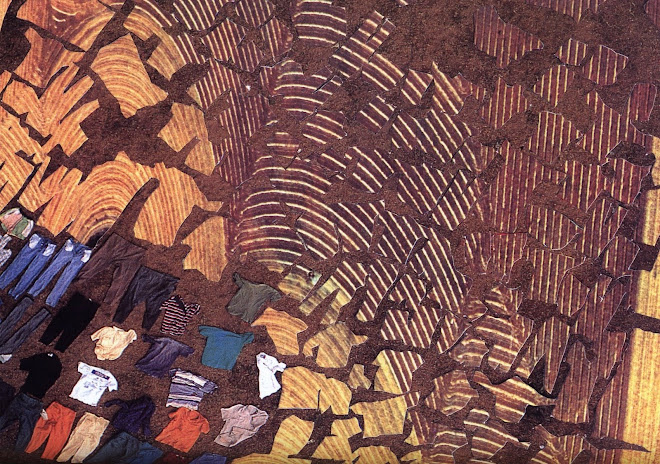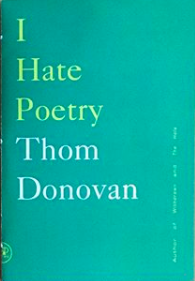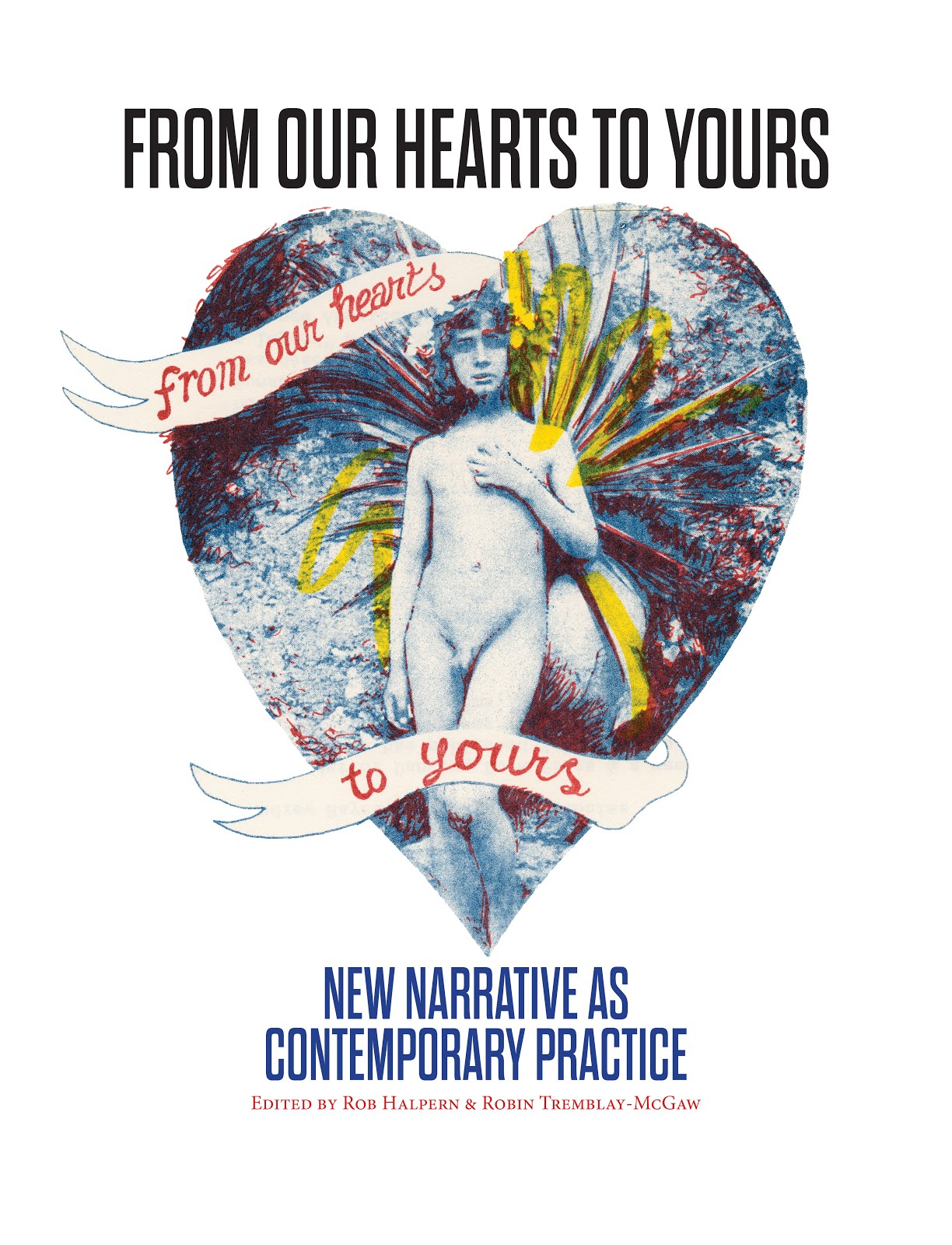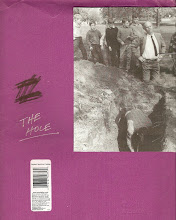Tuesday, March 31, 2015
Interview with Cassandra Troyan
at The New Inquiry
"For the masochist the relationship to one’s desire is always negotiated through a liminal libidinal space traversing the opposing thresholds of dominance and control. It enables a framework for looking outside the conventional expectation of trauma as a context, mediator, and influence of the masochist’s ‘abberant’ behavior. One of the central hopes in KILL MANUAL is an attempt to rethink the power of the bottom, or what it means to willingly choose to enter spaces of subjugation when multiple domains of life are already operating through mechanisms of policing or force. I think the masochist can teach us about instruments of survival and building new possibilities for reciprocal desire through re-organizing spaces of intimacy, power, and control as they relate to appetites or subjectivities unfit for the habitual spaces of capitalist fantasy."
Sunday, March 22, 2015
Danny Hayward's People (review)
How to exit the prison house of certain
historical circuits between Marxist-
Hegelianism and poetry (from Shelley to
Symbolism to Objectivism and Lang Po
to post-Occupy)? Or, twisting the words
of Stuart Hall, what would a Marxist poetry “without guarantee” look
like?
http://poetryproject.org/wp-content/uploads/PPNL-APR-MAY-14-final-final-final-final.pdf
Saturday, March 21, 2015
Renée Green's Other Planes of There (review)
"There is a curious time sense in this book, which has been organized so that we may regard the ways that research, criticism, documentation, and various aesthetic processes feedback with one another, cultivating modes of meta-discourse."
http://bombmagazine.org/article/382633/ren-e-green-s-em-other-planes-of-there-em
Wednesday, March 18, 2015
Corpsefuckers
They’re fucking with the corpses again
Fucking up the corpses
Fucking with the bodies
Plagiarizing the body count
They’re cutting up the text again
Like his body was a metaphor
Like the text weren’t literal
Like his body wasn’t literal
They’re meddling with things
They understand too well
The unremarkable genitalia
The sad objects of control
Taking up the space that should have been reserved
For corpses, their rumored fosse, their
Poorly marked graves and their graves
In the water in the air
The disaster was only a text to you
It was never actual flesh
It was not like the flesh they cut into
Like a promise and a threat
To some day fuck back
Into unprecedented orifices
With unforeseen organs
Until death wasn’t yet
Like a future we could feel
Having only this present
They’re fucking with the corpses
They’re making the corpses into art
Pretending readymade is not another
Name for discovery, pretending they’re not
Subjects and he wasn’t turned into an object
Taking his last breath
They’re pretending there’s no correlation
Between the contextual and the real
How they will tweet about them fucking him
How a network will treat his second death.
How a network will treat his second death.
Saturday, March 07, 2015
For Lee Lozano
The destructive character is the enemy of the étui-man. The étui-man looks for comfort, and the case is its quintessence. The inside of the case is the velvet-lined trace that he has imprinted on the world. The destructive character obliterates even the traces of destruction.
--Walter Benjamin, from "The Destructive Character"
Where’d you go, Lee?
--Walter Benjamin, from "The Destructive Character"
Where’d you go, Lee?
There are performances and then there are performances
Like art was always speculation
Like this was a speculation
On how to be a self
A woman, how to be a woman
To stop circulating
In anything but your present
Would resist art’s alibi
Like the self was the last thing
You could quit
Last form of capital
Boycotting your self
In the 70s everyone became a punk
Because identity was the last thing one could destroy (faced
with the world’s destruction)
To unmake the image of everything, everyone
To do this through image-making
Then destruction itself became a means of identity
How to locate art’s destructive character?
Because you wouldn’t want to be part of any club that would…
Because you hardly have anything in common...
The name keeps changing, its appearance in a flux riven
The series of names that you were
Every name in her story
Those airless spaces where you continued being born
Motherless except for one letter
All that was left
An exchange of lack withdrawn by a lack of exchange
Like Andrew found all of Hannah’s books and effects thrown
to the curb after she died
Death is only the beginning of the artist’s ‘career’
The artist is not present
Or if they are, the discourse is trashed
Question: what is the difference between abjection and
dejection and rejection?
Answer: a prefix.
Answer: a different way to destroy.
Subscribe to:
Posts (Atom)














